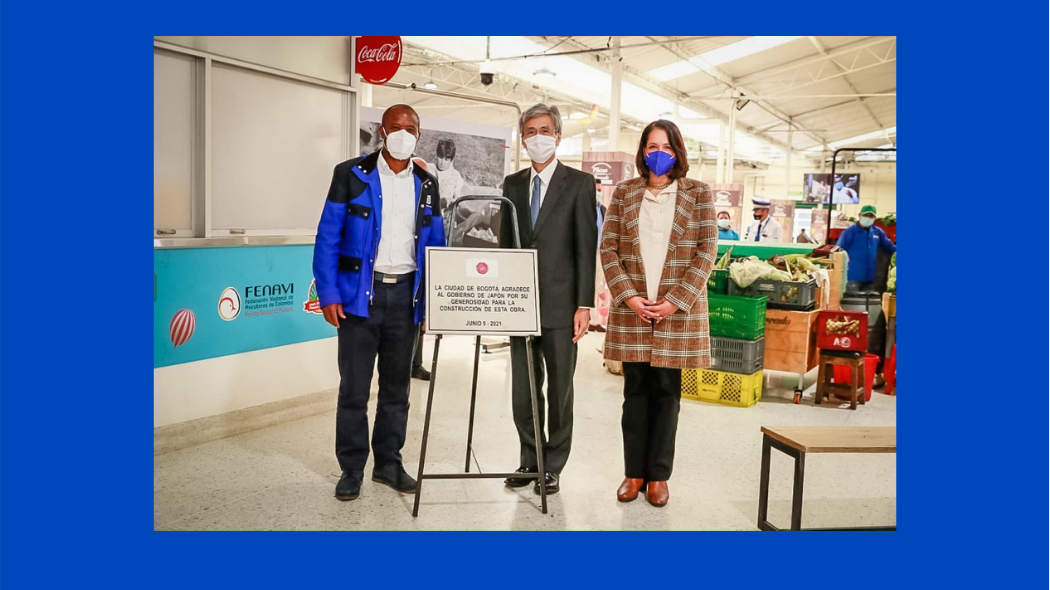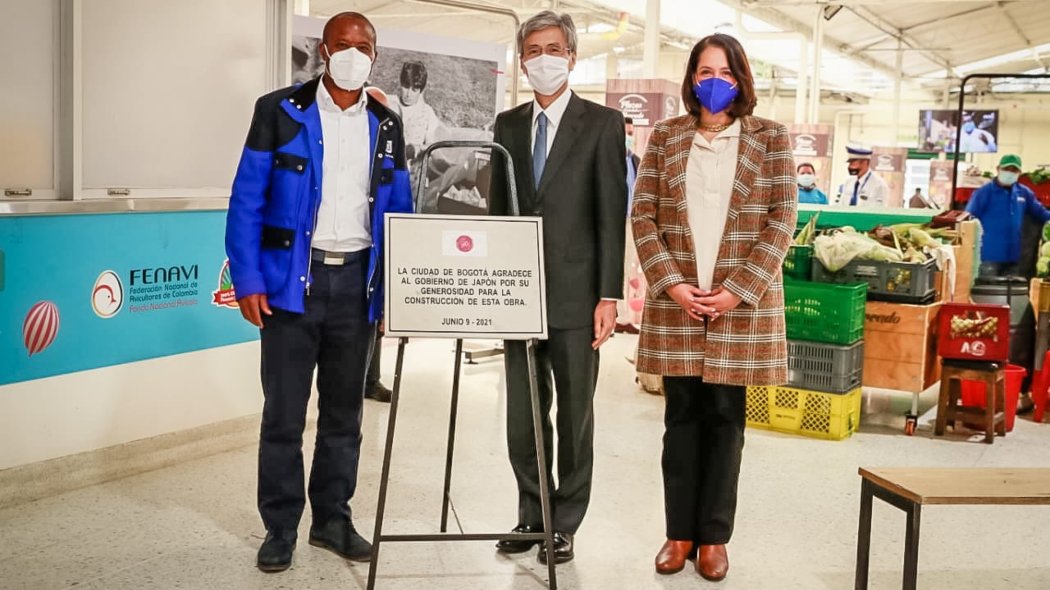Today Bogotá launched the Gastronomic Innovation Centre, a new space in Plaza 12th de Octubre in Barrios Unidos locality. This new center will train local entrepreneurs in food production, packaging and innovation, to name a few.
It goes without saying that this project promotes positive change in the city by supporting the people in the informal economy, that sell in the public space. The center supports informal vendors as long as they are registered with the Individual Registry of Informal Merchants (RIVI).
Attendees took a tour of the Gastronomic Centre, accompanied by the Japanese ambassador, Keiichiro Morishita, the director of Institute for Social Economy (IPES), Libardo Asprilla; the director of International Relations, Luz Amparo Medina; and several entrepreneurs.
"This is a process of collective construction, of great solidarity, but above all of productive inclusion for our merchants and entrepreneurs of Bogotá gastronomy," said Mr. Asprilla, who then highlighted that the embassy of Japan has contributed 272 of the 378 million pesos invested so far.
In this regard, Japanese diplomat Mr. Keiichiro Morishita assured that this type of alliance allows us to continue collaborating with the productive development of Bogotá and stated that this partnership has been on place since before the pandemic.
Ver esta publicación en Instagram
Una publicación compartida de Alcaldía Mayor de Bogotá (@alcaldiabogota)
“Japan has co-operated with a special emphasis on education in Colombia, through projects such as job training centers, libraries and child development centers. In our experience, after the Second World War, we know that training is what drives the development of a country,” said Ambassador Morishita. The project, he continued, is focused on the annual training of 500 people, mainly from the sector of Barrios Unidos.
The Director of International Relations, stressed that "this project is key for environmental sustainability and the inclusion of vulnerable sectors, furthermore, this project is aligned with the Sustainable Development Goals." Director Medina then went on to indicate that most food products are homegrown in our Metropolitan Region.
With this Innovation Centre, the people will benefit from an economic boost, thanks to technical assistance, research processes and dissemination of information targeted to aid the agriculture and food production. “This is a space for co-creation and the open exchange of ideas. Bogotá is the epicenter of the country's cuisine,” stated Director Asprilla.
It also benefits citizens who have been characterized as street vendors, plus the inclusion of merchants from Market Squares that have public stands related to the food sector.
"In the City Development Plan, IPES plans to invest a total of 121,000 million pesos over the course of the next four years. The goal here is focused on improving the conditions concerning functionality, operation, marketing, infrastructure and various services in the network of market places in the city." Mr. Asprilla goes on to say.
One of the beneficiaries is Jorge Humberto Puerta Ruíz, specialist in bakery and pastry. Mr. Puerta-Ruiz thanked the IPES for the opportunity. “They have helped me to structure my company, even though certain raw materials have become more expensive due to national strike, the idea is to extend the sale of my products as far as possible, that’s why the IPES is key. They have guided me through the proper channels in order to formalize my business," said Mr. Puerta-Ruiz.
The Gastronomic Innovation Center is focused on working at the very heart of social entrepreneurship, innovation, research and gastronomic tourism, hand-in-hand with strategic allies such as: the National University (Faculty of Arts), La Salle University (Food Engineering Program), Fundación Escuela Taller de Boyacá, as well as various researchers interested in generating interest around the culinary heritage.
Entrepreneurs will be able to enjoy the services offered by the Innovation Centre focused on:
- Technical assistance aimed at raising the quality of the products.
- Food labelling and categorization.
- Insight on the organization of the workspace.
- Participation in marketing activities.
- Workshops and co-creation spaces related to food and beverage.







